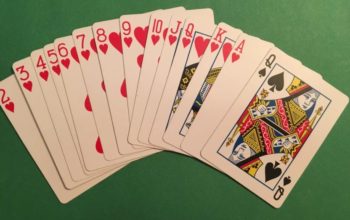There is some possibility that the fantastic player will be overwhelmingly against the bad players. Make sure you understand the rules that increase the likelihood of winning.
When you are on the button, you are the last person to do something in three of the four betting rounds – even after the flop, turn, and river. If it’s your turn, you can have a complete picture of how many different players remain in your hand, and you can also get a much more informed decision about how much to bet when needed.
The most difficult position is the tiny blind. You can sometimes use this to your advantage by playing aggressively, but it is definitely better to behave and use Texas Hold’Em strategies.
Also, focus on keeping all players at the dinner table. Hands that really shouldn’t be played with seven players can be strong when you have three or two left since there are no opponents at the table.
Pay attention to other players

It’s easy to fall into the trap and lose sight of these different players. However, you need to know how many processors they will have (an approximate number, not a fundamentally specific number), what kind of cards they might have, and also exactly what their best hands might be awarded. cards that you talk to everyone about.
One of Texas Hold’Em strategies is observing player trends and it can be helpful. Try to spot this bluff and tighter play. When a new player has never bet more than 10 and suddenly bets $ 50, you need to be careful. This is a really fantastic sign that a player has toughness.
When your player loses big enough hands and immediately comes back with a huge bet, that player can lose out of frustration. This is not just a terrible time and energy to push (if you have a good hand to do it together), not a bodybuilder who is unlikely to fold.
Don’t let different players see the flop for free

For those with a hand strong enough to watch the flop, don’t let other players watch it for free – at least raise with the minimum bet.
Let’s say:
- you have K and one other player has 7-4 as well as 10-5.
- You should be able to get both of their hands preflop.
- But if you let them watch the flop to get only the purchase price in that huge blind, tragedy can befall.
- In cases like this, the worst case would be 10-9-8 you have nothing at all, and also some of your competitors have an open straight draw, while others have several dozen.
- You’ve lost a great hand.
Don’t be afraid to quit after the flop
Folding hands after the flop are equally burdensome for several players. “I have already put the money in the embryo, so I can also stay and determine exactly what is happening,” they conclude. However, this kind of thinking can allow you to use Texas Hold’Em strategies and fold a lot of chips.

Even if you start with a fantastic hand, the flop can kill you. Let’s say you have a k, but the flop comes J-J-5. It will not do you any good, and when someone else comes with a-j, you suddenly have a strong influence. Even if the K is rolled, you lose with 3 Js. When your hand doesn’t improve on the flop and you don’t have a large group, consider getting out of the game.
In some cases, you should walk away from the flop when it may seem like things have gone your way. Let’s say you are left in the game with Q 6 and the flop is K-10-6. It is a perfectly natural tendency to pay attention to what has been said: “Isn’t this grandiose? I have some sixes!” However, K, as well as 10, are extremely dangerous – you still have a very low setting, which means that any additional player with a 10 is in front of you personally.
By following these basic Texas Hold’Em strategies, you will be much better on the turn.
If you are confident that you have the best hands after the turn, then watching the lake will be more expensive for the competition.
In case the cards come with a set, try to remember that you can bump into the whole house.
After the river, your final decision to rate, bet, fold, or make a phone call may simply depend on the realized price of your own cards, which you no longer have the opportunity to improve your hands. If you think your competitor has a hand, it is often unwise to bluff.


